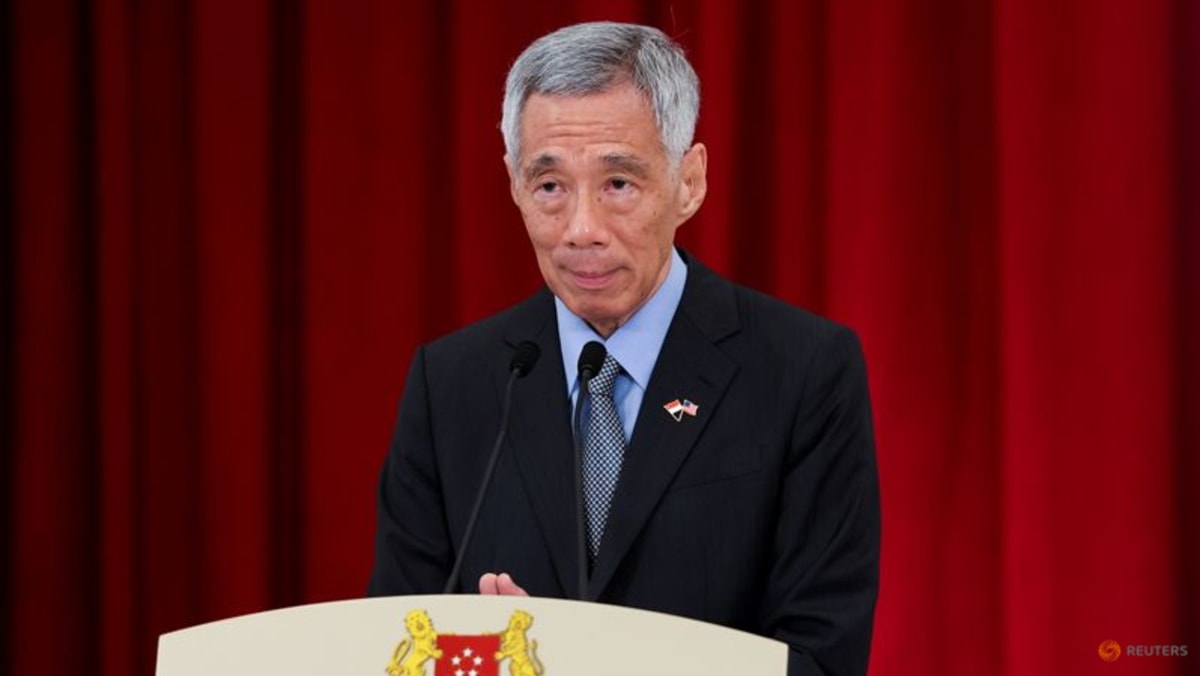
"WATCHED IN HORROR"
Mr Lee recounted in the commentary how he was informed by Professor S Jayakumar, then Minister for Foreign Affairs, about the attack in 2001.
"I turned on the television to see the two towers in flames, and watched in horror later as they collapsed one after the other. Our world changed overnight," he said, referring to the World Trade Centre in New York.
Soon after, Singapore discovered a terrorist organisation with a common ideology and direct links with Al-Qaeda in Afghanistan – the Jemaah Islamiyah (JI) group.
On Sep 11, 2001 , JI members were already in advanced planning for simultaneous truck bomb attacks on multiple targets in Singapore, including the US Embassy and other Western interests, but they were foiled in time by the Internal Security Department (ISD), said Mr Lee.
Internationally, Singapore cooperated with other countries to share intelligence and to "fight a common scourge". The Singapore Armed Forces participated in the International Security Assistance Force in Afghanistan, and contributed to the Global Coalition to Defeat ISIS in Iraq.
"Terrorist groups in these faraway places were serious threats to Singapore," he said.
But terrorism was a greater threat to the country's mutual trust and social cohesion, said Mr Lee.
SINGAPOREANS "INSTINCTIVELY PULLED TOGETHER"
In the face of such extremism, and especially after several Singaporean members of the JI were detained, non-Muslims in Singapore could easily have become fearful and suspicious of their Muslim neighbours, colleagues and friends, Mr Lee said.
Muslims in turn, feeling distrusted and threatened, could have closed in on themselves.
"We would have been divided by race and religion. And if an attack had actually taken place here, our society could have been torn apart."
Instead, Singaporeans "instinctively pulled together", and responded strongly and cohesively to keep themselves safe, said Mr Lee.
Community and religious leaders from all groups and faiths came out to condemn the terrorist attacks, and stood in solidarity with one another.
"In particular, Muslim leaders were forthright in repudiating the terrorists, and they guided the community on the true teachings of Islam. Non-Muslim leaders too spoke up in support of religious tolerance and to express confidence in their fellow Singaporeans," he said.
The Government held open discussions with leaders of all groups and closed door briefings to the key leaders, to share with them sensitive intelligence and threat assessments.
At the grassroots level, Inter-Racial and Religious Confidence Circles were organised all over Singapore. These local networks of leaders were meant to manage any racial and religious tensions after a terrorist attack.
Singapore also sought to rehabilitate those led astray by the violent extremist ideology, said Mr Lee.
https://news.google.com/__i/rss/rd/articles/CBMieGh0dHBzOi8vd3d3LmNoYW5uZWxuZXdzYXNpYS5jb20vc2luZ2Fwb3JlL3BtLWxlZS1oc2llbi1sb29uZy1maWdodC1hZ2FpbnN0LXRlcnJvcmlzbS1mYXItb3Zlci0yMC15ZWFycy1hZnRlci05MTEtMjE3MDU2MtIBAA?oc=5
2021-09-10 22:25:00Z
52781873208663
Tidak ada komentar:
Posting Komentar